We promised too much and gave it too soon :: Interview with Joe Pug

At only 25 years old, Joe Pug sings with the storied wisdom of a man who has seen several decades more of living. His music is stripped and honest: folk songs that paradoxically combine both a tender heart and a sharply-pointed message.
In speaking with him on a park bench one cooling evening in Boulder, I could clearly see both his eloquence and a smoking fire of intensity behind his eyes, and I had a strong feeling that this was one for the ages – music that is important and real, and will last for a long time.
Later that Sunday evening, Pug held the tiny venue under the spell of his songs, using only his harmonica and an acoustic guitar. “Will you recognize my face when God’s awful grace strips me of my jacket and my vest,” he sang with the fiercest of strums and bald-faced longing, “And reveals all the treasure in my chest?”
Joe and I spent an hour discussing the similarities between crafting a song and building a house, having absolute faith in your product, and not getting beaten down by “the meanness of the world.”
Oh Joe. I’m game for that battle if you are.
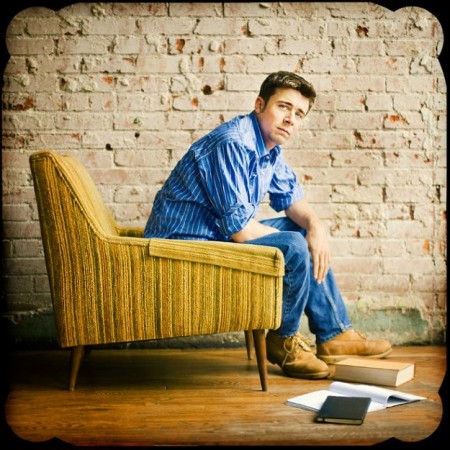
FUEL/FRIENDS INTERVIEW WITH JOE PUG
A PARK BENCH IN BOULDER, COLORADO
May 21, 2009
F/F: You decided to release the very solid Nation of Heat EP for free, and I think one of the most arresting lyrics on the album is “the more I buy the more I’m bought, and the more I’m bought the less I cost.” Was the decision to give it away any kind of anti-commercialism move? Or simply a realistic move?
JP: I think before anything else, I am very realistic about things. And although I think there’s many, many exceptions to this, on the whole, people who make careers as artists – especially in America, where I think there’s a big difference with being an artist anywhere else in the world – I would venture to say that they’re all very realistic about the way things are. Obviously there are some faults with capitalism, but when it comes down to it, I am an American boy. So whether I like it or not, that self-determination and Manifest Destiny is going to come through in the way I conduct the business side here, the way I get my music out there.
F/F: Do you think that there is anything… at odds with art and commercialism? Or, how have you experienced that in the last year or two?
JP: Well yeah – absolutely. Just on a very basic level, the commercial side of things is always interested in productivity, and productivity that happens on a schedule. That is just absolutely not the case with creative things. They come when they wanna come, and they don’t come when they don’t want to come. You cannot do anything to change that. So I think that commercial interests can make you force things in places where you shouldn’t.
But then again, I think the popular conception about “selling out” in music, and changing your music to make a buck – ironically there are a lot of people who have made very handsome livings doing what they like to do, and oftentimes, it pays off a lot more, ironically, to follow what you love than if you decide, well, I’m gonna bring in a really slick producer, I’m gonna cut it down to three and a half minutes so it can be on the radio. I mean, you look at guys like Sonic Youth, Jeff Tweedy, even Nirvana for the most part, when you consider the level of things they were dealing with, pretty much they stuck to their guns. You follow your heart and everything else will follow – I mean, that’s the stupidest way I can put it but if you really do that, everything else will take care of itself. Well (laughs) maybe not money-wise, maybe not immediately, but eventually.
F/F: A lot of young, newer musicians that I speak with will reflect on grappling with that tension in their own careers, that crux of honesty with themselves vs commercialism.
JP: I think what it really comes down to is that it’s very much not a black and white thing. It’s so much more nuanced than that, and you make the decisions on a case-to-case basis. You can’t just say “I’m never going to sign to a major record label,” or “I’m never going to do this, or that.” You really just gotta go case by case and say, “This’ll help me, this will get it out to more people who need to hear it, and I can do it with the sort of compromise that doesn’t infringe upon the major things that I stand for.” And you make mistakes, sure. Sometimes you compromise where you shouldn’t have, and sometimes you look back and say, “Damn, I could have really compromised there, it wouldn’t have affected anything, but it would have helped me.” But you try to get it right most of the time.
F/F: Do you think that giving away the Nation Of Heat EP has been a good decision?
JP: No question, yes. That is the reason for any sort of success I’ve seen so far. The idea of being able to give away my music if I choose is important to me. Hopefully the idea is that more options for distribution will come up like that. Maybe the main thing behind that whole idea is that time-honored American tradition of just having complete faith in your product. Being the knife salesman going around door to door, letting you use his knives because he knows that they’re really fucking good knives and you’re not going to get that quality for cheaper anywhere else, you know what I mean? And that’s definitely the way that I feel about my music. I feel like if someone can just hear a couple of my songs, I mean obviously not everyone’s going to like it, but I feel like a lot of people if I can just give em that chance, they’ll be around for hopefully a career as I continue to make records.
F/F: I don’t know if you have any sort of agrarian background, but that to me seems like an agrarian approach to music — in terms of planting and …letting it grow, giving it time to grow slowly and not expecting some sort of an instant flash return.
JP: Nope. For all intents and purposes, I was raised in the suburbs of Washington DC. My father was a carpenter, my mother was a computer programmer.
F/F: I hear your true last name is the melodic Pugliese, as in from the Puglia region of Italy?
JP: Yeah, I’m half-Italian, from my father’s side. They’re from a town called San Egidio. When I started going by Pug in music, it actually was a big, very big point of contention with my grandfather Rudy Pugliese, who was a theater director for a bunch of years at the University Of Maryland. I gave him a copy of one of the first demos I’d made and I’d done all the artwork myself, and it said “Joe Pug” on it. And he sort of freaked out, he was very insulted. He sort of came around to it, but I mean – it’s show business, however you want to cut it. Of course it’s art first, but it’s also show business. Joe Pug has always been my nickname, and I think in some ways it helps me differentiate with the two parts of my life – the part that is out writing songs and connecting with the people that like those songs, and being with my family and the people that I love that are in my life. Those are two different parts. Maybe it helps me keep a line in between those two.
F/F: Did you spend a lot of time reading growing up?
JP: Nope on that either. I feel like I got nothing out of college. It’s only after leaving there that I learned to read for pleasure. I think what a lot of people don’t necessarily realize… I mean, there’s no question that as you get older you get wiser. I’m not wiser than anybody else. But I think with youth there’s a certain greater willingness to say these things I say in my songs, whereas when you get older, you’ve experienced so much and you’ve seen so many contradictions in your life that you rightfully are hesitant to say anything out loud because you’ve seen everything proved wrong, at least once, you know what I mean? In youth, you can make broader declarations, but also at the same time – there was one artist who said, “The entire job of the artist is to not get beat down by the meanness of the world.”
And I’m not even talking about hope, or hopefulness. Art can be about that, but doesn’t necessarily have to be about that. It does have to do with believing things, though, whatever those things are. Whether they are the bleakest thoughts on the face of the earth or the most hopeful, you have to believe in them. And even if it’s temporary – even if you just believe them for those five minutes when you wrote the song, or if you’ve believed it since you were three years old until you pass on. So maybe it’s easier to believe in things when you’re younger.
Master craftsmen, not only artists and writers, but people who are craftsmen of their lives, they learn how to continue to believe in things. Because the fact of the matter is, out in the wide panorama that is the world, mostly what you see is encouragement not to believe in things. So the longer you can sort of hold out with that belief, probably the more spectacular you are as a person, I think.
F/F: That phrase you use, it reminds me in a way of the book Beloved by Toni Morrison, where it’s said of the slave character, “What she called the nastiness of life was the shock she received upon learning that nobody stopped playing checkers just because the pieces included her children.”
JP: Yeah and granted, you can also sort of feel like an idiot for feeling that way, I mean, you look at the example that she’s giving in that book of a mother having her children taken from her because of slavery, and any trial or tribulation I’ve been in as a relatively middle-class white guy is inconsequential. But, there are varying degrees, but I guess all struggles with the meanness of the world or the nastiness of life all come from the same roots.
F/F: Can you tell me a little bit about the new record?
JP: It is going to come out in the fall, and I think we are going to independently release it again. Most of it has been recorded in Chicago, I am going to go in and do a little bit more at a place called Shirk Music & Sound, also where I recorded my HearYa session. It’s the same as with the making of the first record, or with any other endeavor I’ve tried to creatively do – you struggle with it, and you’re very unhappy with it and you don’t really feel like you’re getting anything across that is important to you. But at a certain point I do have to send it off to a duplication house to have it reproduced, and I’ll get to never touch it again, so I just have to get it the best I can. I remember thinking a month or two ago, I was really stressing about the songs on it, that they’re not good enough, but then, I thought back and that was the same thing I felt about the first record, and now I’ve grown to be fond of that record. For that point in time, I think it was the best thing I could have done. So hopefully a similar feeling will develop after this one’s done as well.
F/F: Is it just you on this album?
JP: Nope. This one I’d say half of it is just me, and the other half has the band that I played with in Chicago. I think it’s going to be a full-length, and this is something we’ve discussed a lot.
I’ve recorded a handful of songs, easily enough songs where if we were going to release them all it would be a full-length and some. But where I’m at, we don’t have a record company, no one is telling us, “Release this,” or “Release that.” We release whatever we want. There was this moment of calm where we were trying to figure out what to release and in what groupings, and finally we just said – “Hey, how about we just release as many good songs as we have? And then charge accordingly?”
I think there’s no need to be prolific if you’re being prolific in shit, you know? Just put out as much or as little good stuff as you have.
F/F: You have more tour dates on your MySpace page than I think any other artist I have ever seen in three-plus years of writing this blog. Are you going to sleep or have a family life in the next year?
JP: Nope. I mean, whenever I’m off the road I make that happen. But I think sort of the point is you work as hard as shit now, because I don’t have kids. You don’t owe anything to anybody else until you have kids, and then you owe everything. So I might as well just do it now while I can. And the best part about it is you get better, man. You cannot, even if you are trying to not get better at what you do, you just cannot help it when you are touring this much, playing your shit every night. I can see how just in the pure trade part I have gotten so much better in the last year, because it’s all I do. I don’t build houses anymore. This is what I do.
F/F: Do you find it difficult to maintain creativity on the road?
JP: I’m writing new material all the time, always. No matter where you are. I used being on the road as an excuse for a while, because it’s not the most conducive place to be, but writing music is always really hard, and I’ve had a million and one excuses for it in my life, and those always vary but what never varies is how difficult it is. Every time. I mean, you do have those songs that just come out and they flow real easy and you write them in ten minutes, but it took like three months of sitting down with a pen and a page in a coffee shop, not being able to write anything, writing really really shitty stuff, and yeah…it should be hard. Any job worth doing is going to be hard. But that doesn’t mean it’s not fun. I think that’s what really attracts me to it. It’s the one job I look at and I can never figure it out, and that’s what’s really attractive about that to me. Any kind of writing, you don’t know where it comes from. Going back and editing is easy, but just getting that original kernel of inspiration, you don’t know where it comes from. You can put yourself in better positions to get to it, and get to it more often, but no one knows where it comes from. It’s a mystery. It’s like a serious and heavy-duty unhealthy relationship. But it’s hard because there’s no other person there to punch.
F/F: I suppose it’s a very different job than something tangible like carpentry, where you have a piece of wood and a plan and the tools there to do the job.
JP: Well actually, and this is the really interesting thing about carpentry – and let me preface this by saying that I was the worst carpenter ever to walk the face of the earth – but what’s really cool is that yes, you do have the blueprints to build the house but there is something more. I remember the first time I was ever on a job, we were putting in joists or rafters or something, and the carpenter I was with was a very experienced journeyman. He looked at it and he said, “Okay…..how are we going to do this?” And I just looked at him, like “What? What do you mean, how are we going to do this?” Because there’s not just one way to do it, and you figure out better ways to do it every time.
F/F: Did that work it’s way into your songwriting at all, what you saw in carpentry with certain things being immutable and certain things being flexible?
JP: You really put yourself in a spot, when you say to yourself, “I’ve written a bunch of songs before, so I know how to write this song that I’m writing right now. You have to figure out how to write each individual song. You can figure out how to write that song, but you can’t figure out how to write songs. I mean, you get better at the techniques you use to make that happen, and you get faster at figuring those things out, but it is still an act of process. Music is never just a passive plugging of variables into an equation.
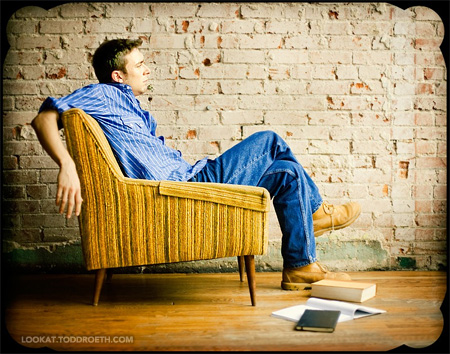
VIDEO: Hymn #101, live in Boulder
VIDEO: Ol’ 55 (Tom Waits cover), live in Boulder
[interview originally appeared on gigbot.com [R.I.P.], with photos by the magical Todd Roeth]


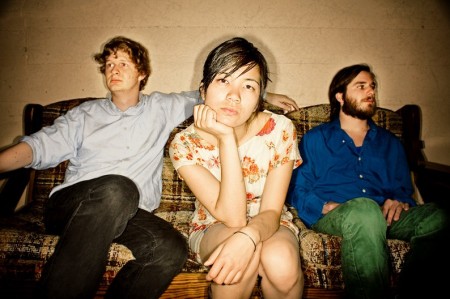
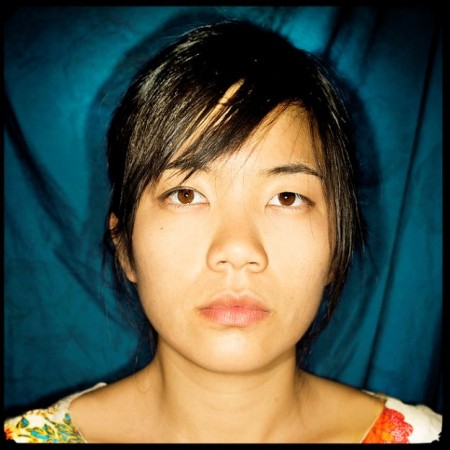


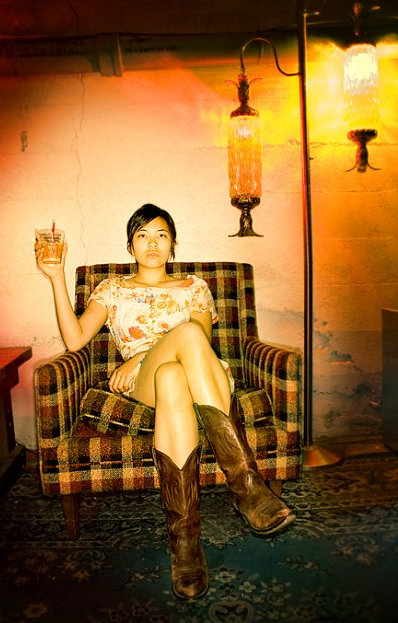
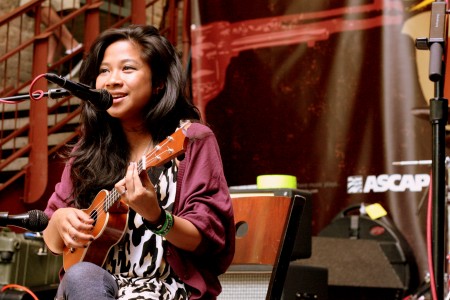
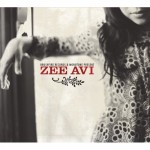 Zee’s
Zee’s 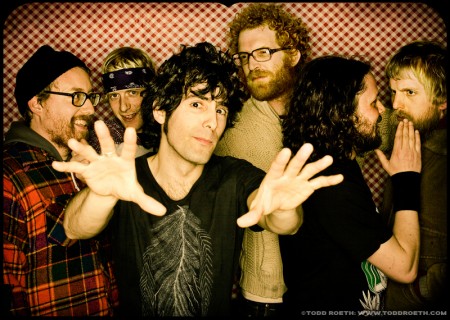
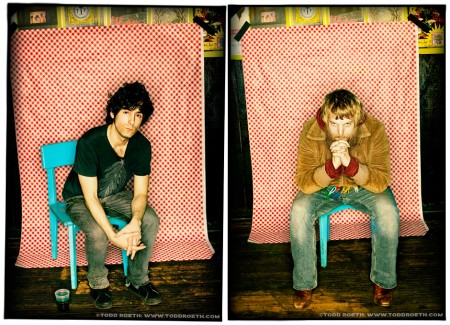
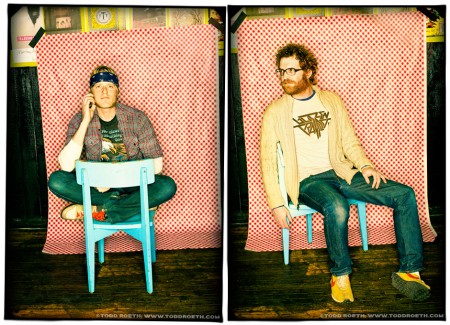
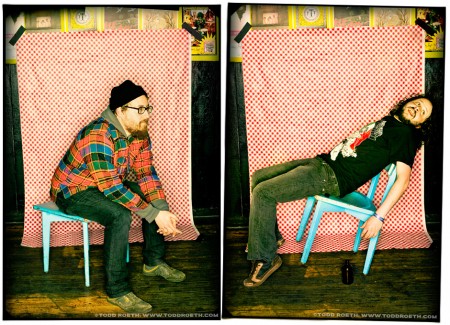
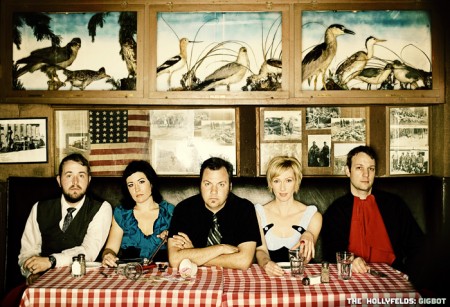
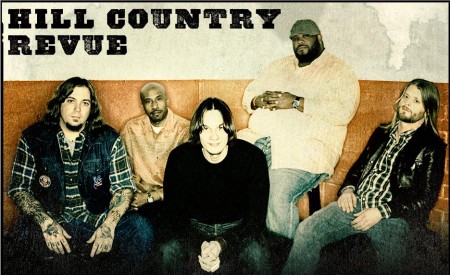


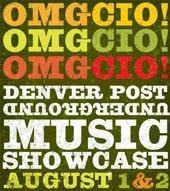
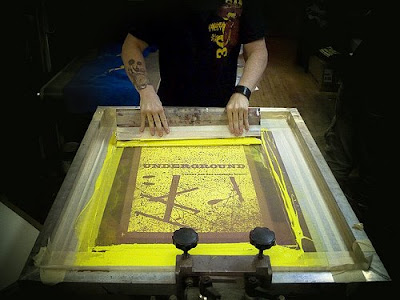

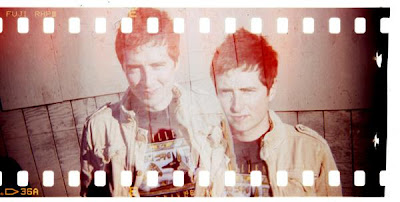
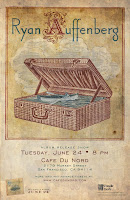
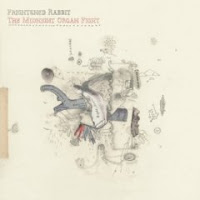


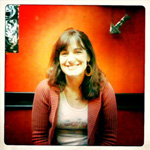 Name: Heather Browne
Name: Heather Browne